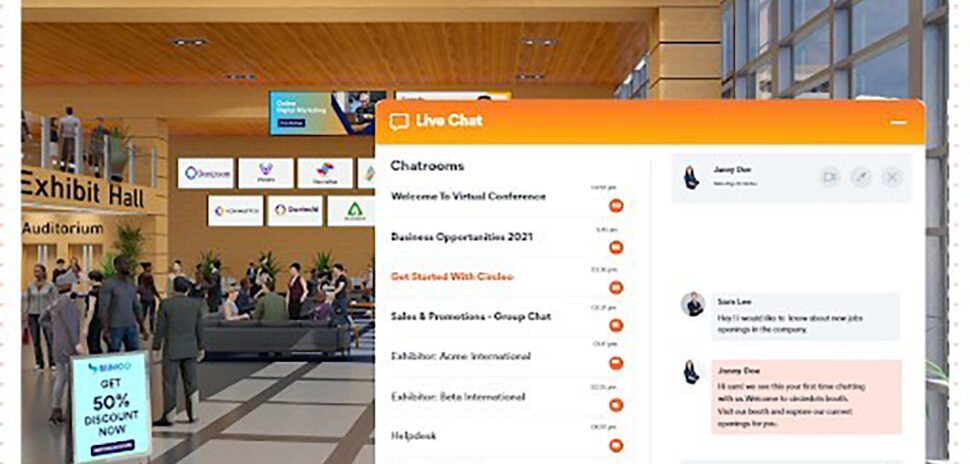“So far the Dallas-Fort Worth area economy is faring better than many areas,” says Ray Perryman in an assessment of the current state of the Dallas regional economy. While the situation continues to change rapidly, the economist points to recent data that compares losses across metros showing the area has lost fewer jobs on a percentage basis than most other major metros.
“It’s a good sign,” he says, while cautioning that it’s important not to read too much into any single observation. Differences in timing of virus outbreaks occurred around the U.S. and how that relates to when an employment survey is conducted are factors.
Still, the region “is showing more stability due to the composition of the economy and the types of jobs that have been able to be retained and shifted to remote status,” according to the economist at the helm of the Perryman Group, an economic research and analysis firm based in Waco,
Perryman says he finds it useful to break the year-over-year employment numbers into two parts—and both reflect positively on the region.
Before the virus took its economic toll, the region was adding jobs at “a more than 60 percent faster pace than the nation,” Perryman says. From May 2019 to Feb. 2020, which was peak employment before the virus, the U.S. expanded by about 1.25 percent while Dallas-Fort Worth expanded by 2.05 percent.
Then, from Feb. 2020 through May 2020—the period of decline—U.S. employment fell by about 12.75 percent. In comparison, Dallas-Fort Worth dropped only 7.9 percent.
“In other words, the region went into the pandemic much stronger and has been affected much less,” Perryman says.
But caution remains. “If cases continue to spiral and more restrictive social distancing is required, everything has the potential to change. But if we can reverse recent trends and avoid a major delay in the recovery, DFW and the surrounding region is well-positioned to recover over the next couple of years and see notable growth on a long-term basis,” the economist says.
Perryman On Timelines, Trends, and Pandemic-proof Sectors
In a Q&A, Perryman discusses a timeline for economic recovery and economic trends on the horizon, as well as the impact of the COVID-19 pandemic on corporate relocations in Dallas-Fort Worth. The area offers a good mix of what companies are looking for, he says.
 What do you expect as a timeline for recovery?
What do you expect as a timeline for recovery?
My most recent forecasts indicate a return to where the economy should be in about two years, with some sectors back sooner, while others lag. One thing that will help the Dallas region is that smaller job losses will make it easier and smoother to recover. In normal times, about 70 percent of the economy is driven by consumer spending and having fewer people out of work will help in that way, as well. Again, things are changing rapidly, and a recovery at this pace depends critically on reversing the recent case surge with major delays in reopening or shutdowns.
What trends are you seeing in the Dallas regional economy as a result of the pandemic?
Unemployment in Dallas-Fort Worth-Arlington went from 115,327 in May 2019 to 469,624 in May 2020 (the most recent data currently available). While as noted previously, that’s better performance than the nation as a whole. The fact that the number of unemployed people quadrupled is a sign of the fallout from action taken to control the virus. In addition, many businesses are putting off hiring and planned investments in the area. While I don’t think these delays are permanent, they are certainly taking a toll. Over a longer-term horizon, some of the advantages that the area has enjoyed in the past likely will be even more important as companies seek opportunities in a post-pandemic environment.
What should businesses be doing now to survive and thrive through this season of uncertainty?
Very few businesses are positively affected by the pandemic. While streaming services, home gym equipment retailers, and cybersecurity firms are among the types of firms that are seeing an uptick in demand, the vast majority have seen rapidly falling revenues. Survival hinges on the financial flexibility to continue to meet obligations and retain key staff. Help is available from both government and private sources, but the longer the disruptions continue, the more difficult the situation becomes.
What can state and local governments do to aid in economic recovery?
Governments can offer both immediate assistance (such as additional time for payment of taxes or bills) and long-term help to the recovery such as proactive economic development efforts. State and local governments are facing massive revenue losses which limit the capacity to respond, but hopefully, the next round of federal stimulus will offer some relief.
How do you think the state of the economy will impact relocations and company expansions in the Dallas region?
I think the DFW area will continue to be a center for growth once the pandemic is under control. The area offers a good mix of what companies are looking for, from workforce and infrastructure to a business-friendly climate. Clearly, the current uncertainty will place some plans on hold, but once the economy can return to more normal operations, the pattern of growth should resume. Firms are likely to put greater weight on workforce quality, healthcare systems, educational opportunities, broadband access, and various environmental and social governance (ESG) issues going forward, which will work to the advantage of the area.
What sectors are more pandemic proof?
Few sectors of the economy can survive a pandemic without harm. Even healthcare, for example, is experiencing surging demand in some areas including those related to virus care, but falling demand in others (such as elective surgeries) and a greater burden of uninsured patients. Certain aspects of technology-oriented industries are doing well because they support the current needs for remote work and school, but others are facing falling demand for products and services. For most sectors, the pandemic has caused substantial losses.
Where do you anticipate growth, in terms of relocations to the Dallas region?
I expect growth to continue to be a mix of new development and refurbishment of existing areas. The diverse economy supports a variety of firms coming to the area with differing needs for sites. Texas has long led the nation in the number of major new locations, and once the virus fallout is behind us, I expect that pattern to continue. As a major metropolitan area and business center, the area will likely see continued strong performance in the years to come. As noted earlier, it’s reasonable to expect that the area will fare especially well.
A version of this story first published in the Summer 2020 edition of the Dallas-Fort Worth Real Estate Review.
Sandra Engelland contributed to this report.
Read more on how DFW is a place for the future from these commercial real estate experts:
‘North Texas Has a Lot Working in Our Favor’
Mike Berry, President, Hillwood
‘There Will be New Opportunities’
Shane Shepard, Economic Development Director, City of Lancaster
Site Selection Group Partner Sums Up the DFW Commercial Real Estate Market in 8 Words
Lee M. Wagner, Partner, Corporate Real Estate Services, Site Selection Group
Inquiries by economic development agencies “are up by a significant multiple over this period last year”
Joel Pustmueller, Managing Director, Brokerage, JLL
‘We’re Seeing More Companies Investing in Their Existing Footprint’
Beth Bowman, President and CEO of Irving Economic Development Partnership
‘We Believe Cities Like Frisco Will Benefit by the Return of Growth To the Suburbs’
Jason Ford, Economic Developer and Vice President, Frisco EDC
The Future Is Bright for Dallas-Fort Worth Corporate Relocations and Consolidations
Jeff Ellerman, Vice Chairman, CBRE
Read the digital edition of Dallas Innovates’ sister publication, the Real Estate Review, on Issuu.
Sign up for the digital alert here.
![]()
Get on the list.
Dallas Innovates, every day.
Sign up to keep your eye on what’s new and next in Dallas-Fort Worth, every day.





























